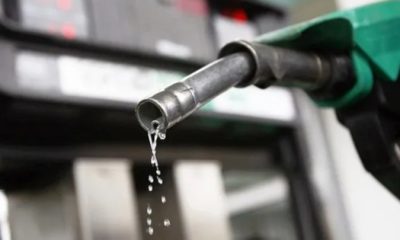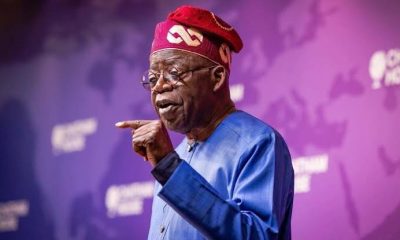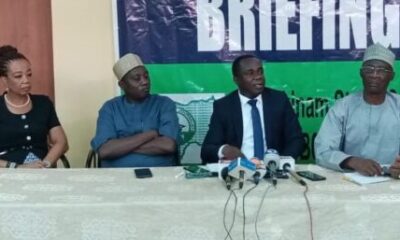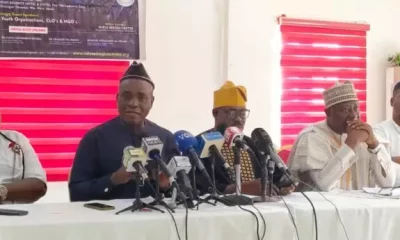Headline
Subsidy Removal Drags Down Petrol Consumption By 28%
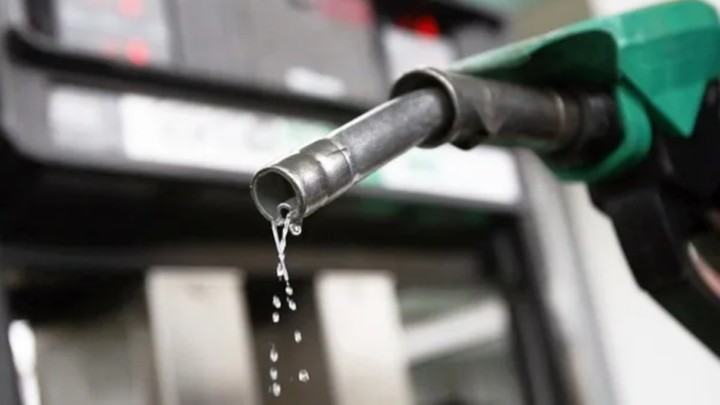
Average daily petrol consumption in Nigeria has fallen by 28 per cent since President Bola Tinubu scrapped subsidy on the fuel at the end of May.
Average daily petrol consumption fell to 48.43 million litres in June, down from the previous average of 66.9 million, according to figures released to Reuters by the Nigerian Midstream and Downstream Petroleum Regulatory Authority (NMDPRA).
The subsidy regime had kept prices cheap for decades but it became increasingly expensive for the country.
Nigeria reportedly spend $10 billion last year on subsidy-leading to wider deficits and driving up government debt.
Since the subsidy was ended a black market in neighbouring Cameroon, Benin and Togo that relied on petrol smuggled from Nigeria has collapsed.
Despite having spent $2.41 billion on the subsidy in the first five months, Nigeria could save up to $5.10 billion this year from scrapping the petrol subsidy and from FX reforms, the World Bank said on June 27.
Corroborating the development the president of Petroleum Retail Outlet Owners Association of Nigeria (PETROAN) , Billy Gillis-Harry, told LEADERSHIP that his Association has developed a framework that could support government transparently and effortlessly collate adequate consumption data on petroleum consumption in the country.
Gillis-Harry, in a telephone conversation told our Correspondent that PETROAN has evolved the Petroleum Products Passport, PPP, a tool that can be perfectly deployed by the industry to transparently monitor products supply and distribution across the country.
While, commending the present administration for mustering the political will to exit the petrol subsidy regime the PETROAN president called for sustainable efforts to fix the nation’s refineries.
Meanwhile, the projected mass rollout of Compressed Natural Gas, CNG, refilling outlets across all states of Nigeria is becoming a reality with seven banks ready to manage revolving fund facility from the African Development Bank, AfDB.
The Independent Petroleum Marketers Association of Nigeria, IPMAN had sealed the deal with the bank following removal of petrol subsidy.
National President of IPMAN, Elder Chinedu Okoronkwo disclosed this development to LEADERSHIP on phone.
Our Correspondent gathered that the Association made the approach after it conducted a market survey on the cost of converting existing petrol stations to CNG outlets
LEADERSHIP authoritatively reports that the IPMAN has already commenced identification of members interested in co-locating CNG dispensers and infrastructure on their existing petrol retail outlets .
The exercise is to identify qualified potential candidates for loans to support it’s target of establishing 10-20 colocated CNG stations in each state of the federation during the first phase of its planned nationwide rollout.
Headline
EFCC bars dollar transactions, orders embassies to charge in naira

The Economic and Financial Crimes Commission has barred foreign missions based in Nigeria from transacting in foreign currencies and mandated them to use Naira in their financial businesses.
The EFCC has also mandated Nigerian foreign missions domiciled abroad to accept Naira in their financial businesses.
The anti-graft agency said the move is to tackle the dollarisation of the Nigerian economy and the degradation of the naira
The Commission, therefore, asked the government to stop foreign missions in Nigeria from charging visa and other consular services in foreign denominations.
The EFCC gave the advisory in a letter to the Minister of Foreign Affairs, Amb. Yusuf Tuggar, for onward transmission to all foreign missions in the country.
In the letter, the EFCC said it issued the advisory because the practice of paying for consular services in dollars was in conflict with extant laws and financial regulations in Nigeria.
In a letter dated April 5, 2024, which was addressed to the Minister of Foreign Affairs, Ambassador Yusuf Tuggar, titled: “EFCC Advisory to Foreign Missions against Invoicing in US Dollar,” the EFCC Chairman, Ola Olukoyede expressed dismay over the invoicing of consular services in Nigeria by foreign missions in dollars.
The EFCC cited Section 20(1) of the Central Bank of Nigeria Act, 2007, which makes currencies issued by the apex bank the only legal tender in Nigeria.
The letter read, “I present to you the compliments of the Economic and Financial Crimes Commission, and wish to notify you about the commission’s observation, with dismay, regarding the unhealthy practice by some foreign missions to invoice consular services to Nigerians and other foreign nationals in the country in United States dollar ($).
“It states that ‘the currency notes issued by the Bank shall be the legal tender in Nigeria on their face value for the payment of any amount’.
“This presupposes that any transaction in currencies other than the naira anywhere in Nigeria contravenes the law and is, therefore, illegal.”
The commission further stated that the rejection of the naira for consular services in Nigeria by certain missions, along with non-compliance with foreign exchange regulations in determining service costs, is not just unlawful but also undermines the nation’s sovereignty embodied in its official currency.
The letter continues: “This trend can no longer be tolerated, especially in a volatile economic environment where the country’s macroeconomic policies are constantly under attack by all manner of state and non-state actors.
“In light of the above, you may wish to convey the commission’s displeasure to all missions in Nigeria and restate Nigeria’s desire for their operations not to conflict with extant laws and regulations in the country.”
Diplomatic sources said yesterday, May 10, that some embassies were wondering whether the EFCC’s advisory represented the position of the Federal Government.
Headline
Prince Harry visits sick Nigerian soldiers in Kaduna

Prince Harry and his team visited the 44 Nigerian Army Reference Hospital in Kaduna to interact with wounded soldiers who are receiving treatment.
The Duke of Sussex is in Nigeria with his wife to champion the Invictus Games, which Harry founded to aid the rehabilitation of wounded and sick servicemembers and veterans.
Nigeria joined the Invictus Community of Nations in 2022 becoming the first African country to join.
Prince Harry’s visit to Kaduna came 68 years after his late grandmother Queen Elizabeth II visited the state during the time of the late Premier of Northern Region Sir Ahmadu Bello.




-

 Headline5 days ago
Headline5 days agoSuspend cybersecurity levy– Reps to CBN
-

 Business5 days ago
Business5 days agoNigeria needs over $2bn to revive Ajaokuta Steel Plant, says Minister
-

 Headline3 days ago
Headline3 days agoPrince Harry visits sick Nigerian soldiers in Kaduna
-

 Entertainment3 days ago
Entertainment3 days agoAMVCA Cultural Day: BBNaija’s Neo, Venita win Best Dressed Male, Female
-

 Metro3 days ago
Metro3 days agoEx-Sports Minister laments after hospital neglected him for hours over N80000 deposit
-

 Headline5 days ago
Headline5 days agoTinubu resumes work after foreign trip
-

 News5 days ago
News5 days agoShan George’s money returned to Zenith Bank account

